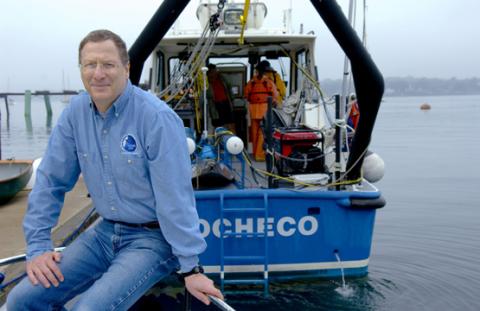
Center for Coastal and Ocean Mapping/Joint Hydrographic Center
There is tremendous attention being paid to the role the oceans play in the survival of our planet and the vulnerability of the oceans and coasts to man-made and natural disasters (oil spills, hurricanes, tsunamis, etc.).
Education
- B.S., Geology, University of Rhode Island
- Ph.D., Marine Geophysics, University of California, San Diego
What is your current job and what does it entail?
I am a professor in earth science and ocean engineering and am the director of the Center for Coastal and Ocean Mapping and codirector of the NOAA/UNH Joint Hydrographic Center. The CCOM/JHC is a national center of excellence for developing innovative techniques for ocean mapping and exploration and for training the next generation of ocean mappers. We have about 85 people that I supervise in this mission.
What was the key factor in your career decision?
Early exposure to the books and TV shows of Jacques Cousteau. Really!
What do like most about your career?
Going to sea, exploring and discovering. The ocean is full of mysteries and our job is to help unravel them.
What do you like least about your career?
Administrative work.
What do you do to relax?
I actually am most relaxed at sea but at home it would be skiing or other sports.
Who are your heroes/heroines?
Jacques Cousteau of course, but also several of my mentors, including my thesis advisor Dr. F.N. Spiess, who was a very highly decorated World War II submarine captain and went on to become one of the leading ocean scientists in the world.
What advice would you give a student who expressed an interest in pursuing a career in your field?
Don't give up on science and math. Try to get involved in internships or volunteer to help in projects.
Are career opportunities in your field increasing or decreasing and why?
Increasing. There is tremendous attention being paid to the role the oceans play in the survival of our planet and the vulnerability of the oceans and coasts to man-made and natural disasters (oil spills, hurricanes, tsunamis, etc.).
What will you be doing 10 years from today?
Hopefully, the same thing.

